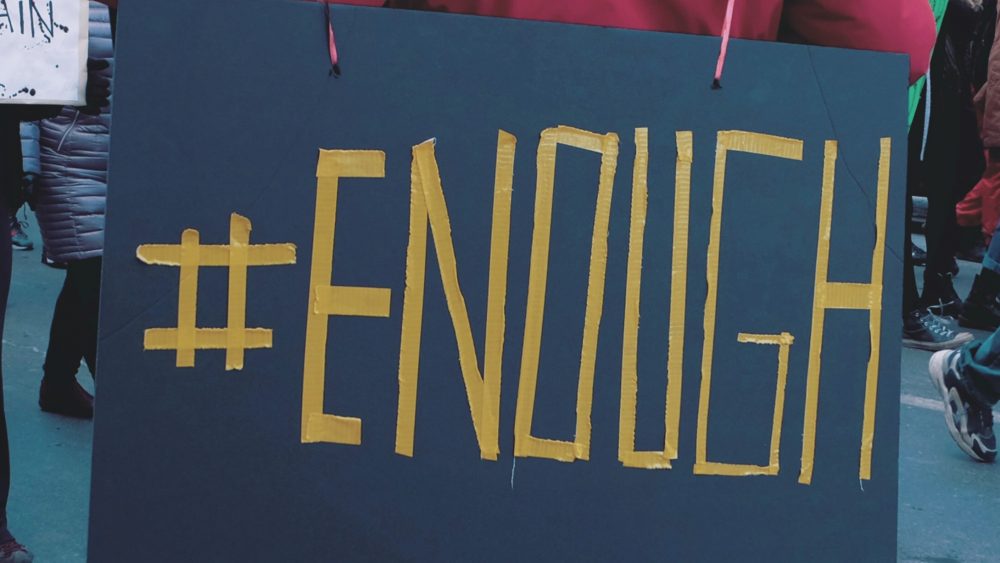The year has not started well. ‘Enough already’ has been a refrain from many of us watching the endless doom-laden headlines rolling in. War, climate change, economic meltdown – and it’s only March. But what sits behind that simple word enough – and might it hold answers to these seemingly insurmountable challenges facing humanity today?
Any right-minded person surely knows the world has had enough war and violence. Our history is littered with it but does our future have to be too? Most wars, including this latest one, are about the desire for more – more power, land, money, oil, labour, resources. Wars are almost always started by the already powerful, the already rich, those that have enough – but who do not recognise or accept it. It is not the poor who started or will gain from this war. Those who do not have enough are paying the ultimate price to get more to those who definitely already do.
So too in our headlong race towards climate catastrophe, there is no ‘enough’. The latest IPCC report yet again warns us that we are ignoring limits – limits to our planetary boundaries, the sea’s capacity to absorb our plastic, the sky’s ability to absorb our pollutants.
In our rush to chase some narrow definition of ‘progress’ we’ve lost all idea of enough. What level of comfort and security is enough? Do we have to use the last drop of fossil fuel? Will the top 1% of the world’s richest people have to own more than their current 48% of global wealth before someone says enough? Will energy, food and the basic building blocks of life have to be out of reach to all but a privileged few for us to say enough is enough?
At what point will progress start to be measured by our capacity to flourish, thrive, belong, be happy? Our incapacity to embrace the concept of enough is currently hurtling us towards a social, economic and environmental precipice.
There is hope – in the growing recognition by many, even some in power, that our current economic model is the root of this crisis. That model requires us to believe that nothing is ever ‘enough’. Whether we are in poverty or dripping in wealth, if we believe that what we have is enough for our happiness and security, the walls of the make-believe castle of perpetual growth that underpins our current economic model will come crashing down.
Since a ‘model’ is merely a theory, a shape, a creation to help guide something – it is in our collective hands to change that model for good. If enough becomes a destination our extraordinary creativity, ingenuity, skills and resources can be focused on building a sustainable and fairer future for ourselves and future generations. Only then will the power the world’s super-rich have over us be gone. That might not be their idea of progress but shouldn’t it be all of ours?
A new economic model already exists, one that prioritises the wellbeing of people, places and the planet on which we depend. One that gives voice and influence to the vulnerable, to nature and to generations to come. Economists, environmentalists, political, business and community leaders all over the world already champion the wellbeing economy. Many of them are coming together to convert pockets of innovation into a global movement for change.
Centre for Thriving Places has been supporting this movement for over a decade – helping create the shift to an economy that delivers enough money, security, energy, food, connection, support and hope for everyone now and into the future. We cannot wait for global leaders, many of whom profit from the current model, to decide that enough is enough. We need to make that shift – place by place, community by community, region by region, country by country.
Next time you think ‘enough already’, rather than losing hope, think about joining the movement that’s building a new economy today. Let’s create a world where enough is available for all, where wars are not fought by those without enough to live on for those with more than they can ever consume, or where resources are wasted today that will be needed to deliver enough for our grandchildren tomorrow.
If you agree that enough is enough, get in touch and see how we and our partners in the wellbeing economy movement can help you, your organisations, cities and countries move to a better model today.
Photo by Rux Centea on Unsplash



Comments are closed.